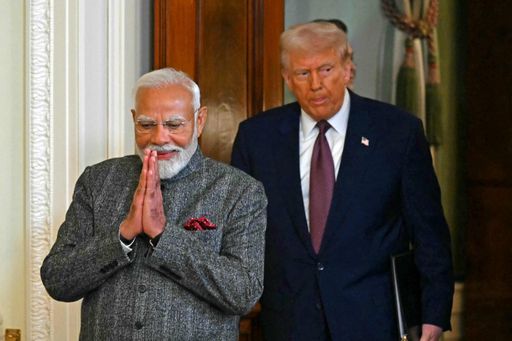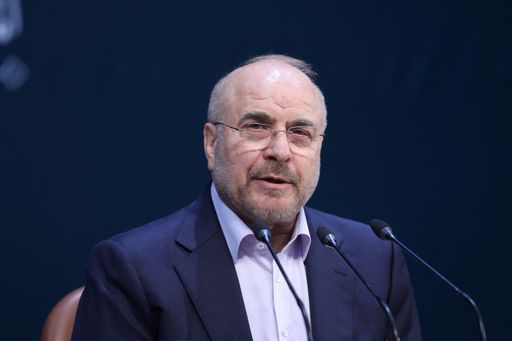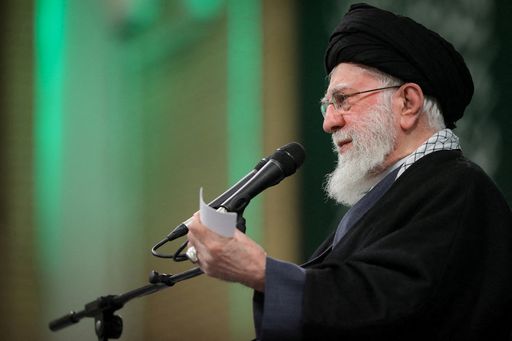Sport
Dollar
43,5384
0.04 %Euro
51,4614
0.05 %Gram Gold
6.888,9100
-0.3 %Quarter Gold
12.309,5300
0 %Silver
110,6300
-9.65 %A poet, a prisoner, a freedom fighter. Often called “Bosnia’s Yunus Emre,” Dzemaludin Latic speaks to TRT World about his days with Alija Izetbegovic, memory and resistance.
On the anniversary of the Srebrenica genocide, remembrance returns not only through names etched in stone but through voices that tremble with grief.
This year, the identities of seven more victims were confirmed, thirty years after their lives were taken. For many others, the remains are still unnamed, their stories still suspended in silence.
Each year, the Srebrenica Inferno oratorio is performed to honour the thousands of innocent lives lost and the survivors who still carry the weight of memory.
First staged in 2003 at the opening of the Srebrenica Potocari Memorial Centre, the oratorio blends poetry and music into a haunting act of testimony.
Written by 68-year-old Bosnian poet, academic Dzemaludin Latic and brought to life through the music of Delo Jusic, the piece is performed by the Srebrenica Children’s Choir, where sorrowful voices pierce the silence of history.

This composition was born of memory. Latic, now 68, lived through the war, shared a prison cell with Alija Izetbegovic, Bosnia’s first president, and bore witness to the systematic destruction of his people.
Latic’s anthem, Ja Sin Sam Tvoj (“I Am Your Son”), was unanimously declared the “anthem of the Bosnian people” at the First Bosnian Congress in 1993.
‘To bear witness to history’
“On the night of July 10, as Srebrenica’s fall began, Alija summoned me to the Presidency building,” Latic tells TRT World.
In July 1995, as Serbian forces closed in on the UN-declared “safe zone” of Srebrenica, President Izetbegovic summoned Latic to the Presidency building.
“To this day, I still don’t know why he called me that night, perhaps so I could bear witness to history. He was pacing alone in a room, visibly anxious. I’m not even sure he noticed when I entered.”
The building’s communication system was broadcasting live reports from a journalist named Nino, reporting from within Srebrenica.
“I can still hear his voice: ‘The Chetniks are advancing… people are retreating…’”
Then, just before dawn, Nino made his final call. “He said: ‘This may be my last report.”
“It was a terrifying moment. To this day, I don’t know how Alija endured that night.”
Latic describes this moment as one when the world failed to prevent a genocide.
“It is clear. They were killing us simply because we are Muslims.”
Between 11 and 22 July 1995, under General Ratko Mladic, the Army of the Republika Srpska murdered more than 8,000 Bosnian Muslim men and boys. The massacre unfolded in full view of Dutch UN peacekeepers stationed in the demilitarised town.
“They didn’t kill over 8,000 of our people because they were cowards,” Latic says. “They killed us because we were Muslims.”
“French General Philippe Morillon promised that heavy weapons would be taken from the forces of Republika Srpska, but that promise was never kept. Srebrenica was destroyed because it stood in the way of a unified Republika Srpska and the vision of Greater Serbia.”
Only after the enclave’s destruction did Serbian leaders begin to engage in peace negotiations, culminating in the Dayton Agreement.
“They did the same thing during World War II,” Latic says.
“The Serbs first ‘cleansed’ the entire Podrinje region of Muslims, then made a pact with Tito and the Partisan movement, came to Jajce, and under Churchill’s patronage, established the federal Yugoslavia.”
Pen against the sword
Although Latic, as a member of the Army of the Republic of Bosnia and Herzegovina, was awarded the two highest military honours for his contributions to the defence of the Bosnians and Muslims, he says his real struggle came because of the pen.
“The national weekly newspaper Ljiljan, which I edited, brought together the best journalists and was widely read in besieged Sarajevo, and abroad, even in Türkiye,” he recalls.
The paper combated propaganda from ethnic Serb and Croat forces aiming to discredit the Bosniak struggle for freedom, according to Latic.
“At the time, the aggressor forces had destroyed our radio and television transmitters and cut off our communication lines.”
What shaped Latic’s life most profoundly was his writing.
With the publication of his first book, he was recognised throughout Bosnia, and soon after, across Yugoslavia.
“In Belgrade, I was seen as a young Yugoslav poet. After receiving an award, Alija Izetbegovic expressed interest in meeting me. From that day until his passing, we remained close friends for 23 years.”

In August 1983, Latic, and a group of Muslim intellectuals, including Alija Izetbegovic, were sentenced in the “Sarajevo Process,”for alleged hostile activity, charges largely based on Izetbegovic’s 1970s Islamic Declaration in socialist Yugoslavia.
He was later released in 1986 following the intervention of the International PEN Club. He stayed back while his wife and children emigrated to Canada via many refugee camps. He continues to live as a poet and academic in Sarajevo.
Before I met the late Alija, says Latic, “I had already rejected membership in the Communist Party. I turned down an offer to become a teaching assistant at the Faculty of Philosophy, Department of Literature. I refused to serve a system that was hostile to Islam and Muslims. I never regretted that.”
“Not many people know this, but the aggressors attempted to assassinate Alija three times,” he says. “They tried to poison me in Foca, but Allah [God] saved me.”
“Everyone revered Alija. He was sensitive towards me. When I was transferred to Foca after becoming ill with tuberculosis, he carried that as a burden. I had been arrested because of my connection to him.”

He condemned the arrests and would say: ‘How pathetic are those who arrest poets!’
“Those of us in Zenica were fighting to stay alive,” he says. “Had an attack on Bosnia begun during those years, I am certain we would have been the first to be executed.”
Several of their comrades were killed. Irfan Ljubijankic, the foreign minister, and Prime Minister Hakija Turajlic were both assassinated.
Zenica Prison, he says, “was among the harshest. They didn’t want to kill us directly. But they made life so unbearable for us to die from illness or exhaustion.”
In the prison, Latic would read his poems aloud to Alija.
One Autumn Day, described the execution of 2,000 Muslims on the Drina Bridge during World War II.
“Our prison was right next to that bridge. Alija cried like a child when he heard it.”
From One Autumn Day:
One autumn day, as the poplars were shedding their leaves,
An old woman with a yemeni scarf stepped onto the bridge…
They were all bloodied, drowned by the Drina — the Drina that still trembles —
In the February of the 1940s — amid the screams of death!
Later, walking in the yard, Alija told him: “One day, when we are free, we will engrave your verses on the memorial stone for martyrs, Dzemal.”
“Those dreams,” Latic adds quietly, “never came true.”
“Alija is no longer with us. I walk the streets of Sarajevo like a stranger. I often smile as I pass places filled with memories, silently greeting them, and return home heavy-hearted, realising I no longer have anyone left to talk to.”
“Everything reminds him of those years. Our past lives within us. We cannot, and should not, detach from it.”
Today, he sees survival itself as a kind of divine plan.
A wordless anthem
“After the Dayton Agreement, the dismantling of all state symbols began: our flag, our national radio and television, and my small but significant poem.”
Because of this anthem, Muslim Bosniaks, Turks and others began to refer to Latic as the national poet.
“Extreme secularist circles ensured that the composition for the new Bosnian national anthem was written by Ranko Rihtman, a composer living in Tel Aviv,” he says.
When a competition was announced to find lyrics to accompany the composition, Latic submitted a new text at the last moment.
According to what he later learned from members of the selection committee; his lyrics had made it into the top five.
However, the committee decided not to continue working and dissolved as its term ended. Since then, no new committee has been established, nor has any new anthem text been officially adopted.
“I believe you can guess why,” he adds.
“Unfortunately, no one mentions it today, and it would not be appropriate for me to keep bringing it up,” Latic says.
And so, Bosnia has remained with a national anthem that has no lyrics.
‘Necip Fazil is my inspiration, my poetic love’
Still, the poet resonates in many hearts.
“When I came to Türkiye for the first time after the war, I was surprised to see how deeply the Turkish people admired me and referred to me as the national poet.”
He remembers a Friday in Adapazari where he travelled for a cultural event. After prayer, word spread that the Bosnian “national poet” was in town.
Shopkeepers gathered, offered tea. One man approached, phone in hand, playing Ben Senin Oglunum (“I Am Your Son”). “Every poet would dream of being welcomed like that.”
Latic received the inaugural Necip Fazil International Culture and Art Award in 2017.
“I am grateful for this award, especially because of the name it bears. Necip Fazil is my inspiration, my poetic love.”
He recalls arriving in Istanbul and being welcomed at the historic Sirkeci Station by Sezai Karakoc.

Later, he would meet Nuri Pakdil at the Istanbulensis Poetry Festival.
“Karakoc gifted me one of his books. I also have Cile by Necip Fazil. If God grants me life and health, I will learn Turkish, especially for its ‘Magnificent Seven’ and translate their poems. I’ve already translated Karakoc’s Mona Roza.”
This poetic exchange, he believes, is more than literary admiration. It is testament to a transnational brotherhood that endured genocide, exile, and silence.
Latic plans to publish a four-part novel in Turkish, telling the story of Bosnia’s tragedy and the “Young Muslims,” the anti-fascist, anti-communist movement led by Izetbegovic.

Often called the “Bosnian Yunus Emre,” Latic has written over 200 ilahis and kasides that resonate throughout the Balkans. Yet, humility defines his path.
“I made a promise to my nation: God willing, I will write 999 ilahis (Islamic spiritual hymns) and kasides (Ottoman-style odes for religious figures), but never a thousand. Writing more would feel like disrespect, as if I were trying to surpass my master, the eternal Yunus.”
For a man who once heard the final cries of Srebrenica, wrote elegies beside prison walls and dreamt of stone memorials, this moment of recognition in Türkiye is not merely a tribute.
It is a vindication: that words endure where borders fail.
Comments
No comments Yet




















Comment